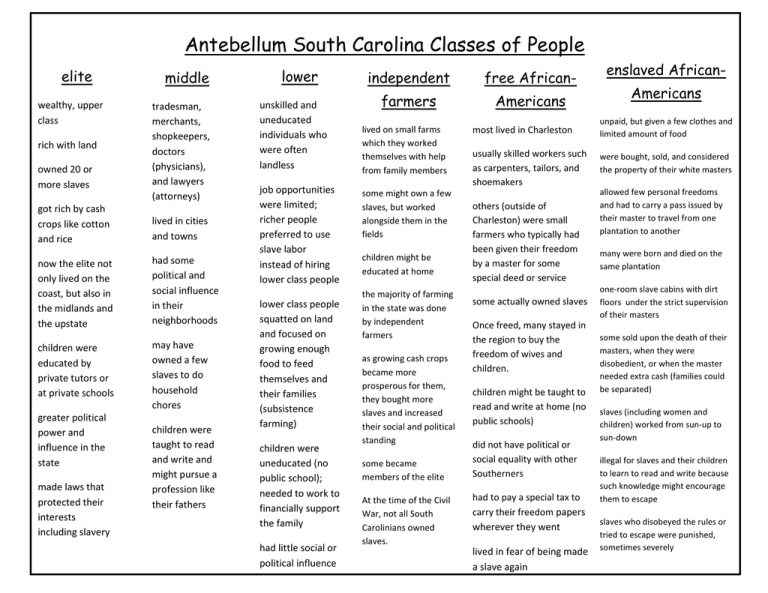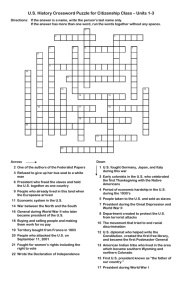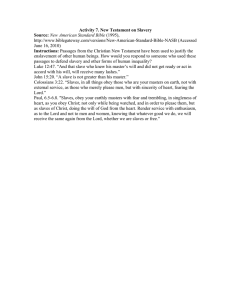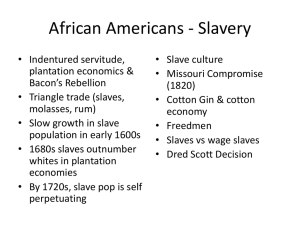Classes of People During the Antebelluim
advertisement

Antebellum South Carolina Classes of People elite wealthy, upper class rich with land owned 20 or more slaves middle tradesman, merchants, shopkeepers, doctors (physicians), and lawyers (attorneys) got rich by cash crops like cotton and rice lived in cities and towns now the elite not only lived on the coast, but also in the midlands and the upstate had some political and social influence in their neighborhoods children were educated by private tutors or at private schools may have owned a few slaves to do household chores greater political power and influence in the state made laws that protected their interests including slavery children were taught to read and write and might pursue a profession like their fathers lower unskilled and uneducated individuals who were often landless job opportunities were limited; richer people preferred to use slave labor instead of hiring lower class people lower class people squatted on land and focused on growing enough food to feed themselves and their families (subsistence farming) children were uneducated (no public school); needed to work to financially support the family had little social or political influence independent free African- farmers Americans lived on small farms which they worked themselves with help from family members some might own a few slaves, but worked alongside them in the fields children might be educated at home the majority of farming in the state was done by independent farmers as growing cash crops became more prosperous for them, they bought more slaves and increased their social and political standing some became members of the elite At the time of the Civil War, not all South Carolinians owned slaves. most lived in Charleston usually skilled workers such as carpenters, tailors, and shoemakers others (outside of Charleston) were small farmers who typically had been given their freedom by a master for some special deed or service some actually owned slaves Once freed, many stayed in the region to buy the freedom of wives and children. children might be taught to read and write at home (no public schools) did not have political or social equality with other Southerners had to pay a special tax to carry their freedom papers wherever they went lived in fear of being made a slave again enslaved AfricanAmericans unpaid, but given a few clothes and limited amount of food were bought, sold, and considered the property of their white masters allowed few personal freedoms and had to carry a pass issued by their master to travel from one plantation to another many were born and died on the same plantation one-room slave cabins with dirt floors under the strict supervision of their masters some sold upon the death of their masters, when they were disobedient, or when the master needed extra cash (families could be separated) slaves (including women and children) worked from sun-up to sun-down illegal for slaves and their children to learn to read and write because such knowledge might encourage them to escape slaves who disobeyed the rules or tried to escape were punished, sometimes severely



